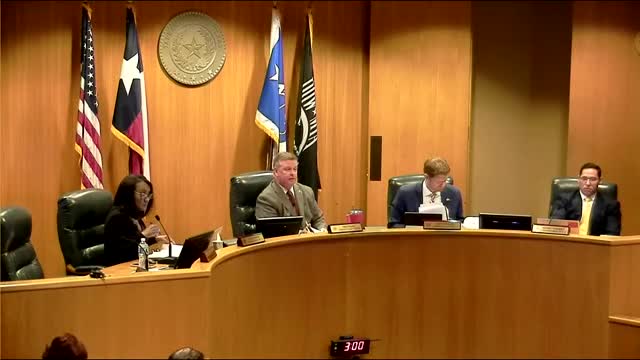Article not found
This article is no longer available. But don't worry—we've gathered other articles that discuss the same topic.
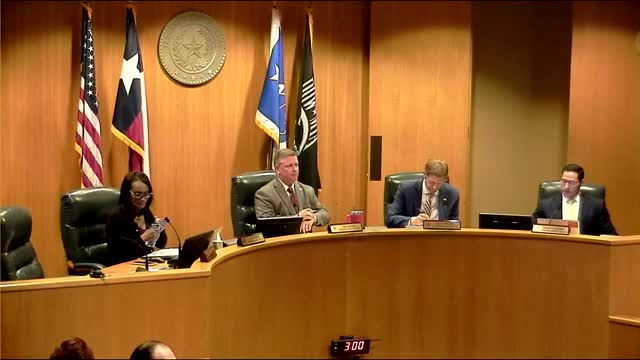
Votes at a glance: Tarrant County commissioners approve consent agenda, proclamations and a closed-session community development item
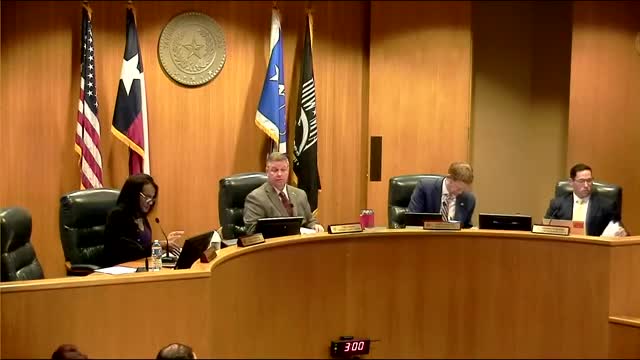
Commissioners approve new jail liaison position amid public calls for accountability in jail deaths
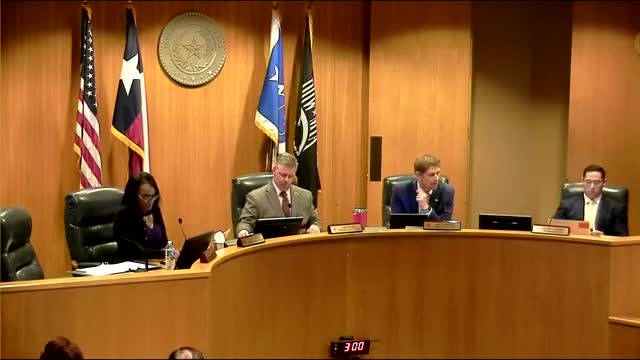
Commissioners accept privately funded 10 Commandments monument for courthouse lawn over objections, 3–1
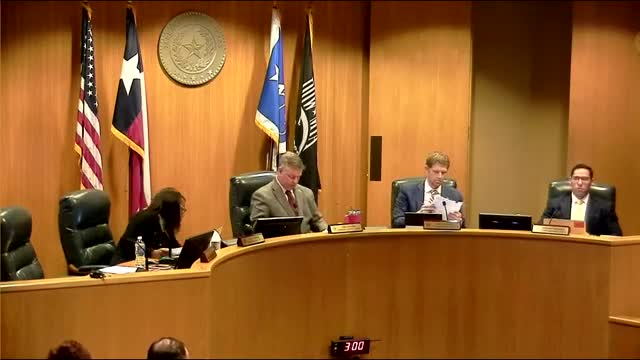
Tarrant County approves precinct consolidations and boundary adjustments after legal review
